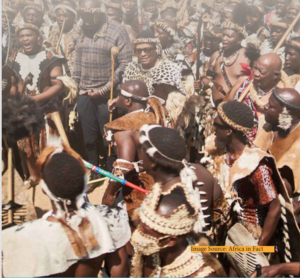Cultivating a Culture of Peace in Zimbabwe: The Role of Traditional Leaders
In a world often marred by conflict and division, this year’s International Day of Peace theme, “Cultivating a Culture of Peace,” poignantly reminds us of our collective responsibility to foster harmony and understanding. This theme underscores the importance of nurturing peace within our communities and across generations, emphasizing that peace is not merely the absence of conflict but a proactive commitment to dialogue, mutual respect, and cooperation.
A culture of peace is built on the foundation of values such as empathy, tolerance, and justice. It involves creating environments where individuals feel safe, respected, and valued. This culture starts at the grassroots level, within families, schools, and local communities, and extends to national and international arenas. By instilling these values from an early age, we can ensure that the ideals of peace permeate across generations and geographic boundaries.
 Cultivating a culture of peace is particularly crucial for Zimbabwe. The nation has experienced its share of political and social upheavals, which have left deep scars on its communities. By fostering a culture of peace, Zimbabwe can address these historical wounds and build a more cohesive and resilient society.
Cultivating a culture of peace is particularly crucial for Zimbabwe. The nation has experienced its share of political and social upheavals, which have left deep scars on its communities. By fostering a culture of peace, Zimbabwe can address these historical wounds and build a more cohesive and resilient society.
Traditional leaders in Zimbabwe hold a unique and influential position in promoting peace. As custodians of culture and tradition, they are deeply respected and trusted within their communities. Their role in peacebuilding is multifaceted.
Traditional leaders often mediate local disputes, using their authority and wisdom to resolve conflicts amicably. Their deep understanding of local customs and traditions enables them to offer culturally relevant solutions that are more likely to be accepted by all parties involved.
Traditional leaders can help bridge divides within communities by fostering a sense of unity and belonging. They can also organize and lead community dialogues encouraging open communication and mutual understanding, reducing tensions and preventing conflicts.
Traditional leaders can advocate for nonviolent approaches to conflict resolution and promote the values of empathy, respect, and cooperation. Their endorsement of peaceful practices can significantly impact community behaviour and attitudes.
Traditional leaders can play a crucial role in educating their communities about the importance of peace and the detrimental effects of conflict. They can raise awareness and inspire collective action toward peacebuilding through storytelling, public speeches, and community gatherings.
Traditional leaders can collaborate with government officials, non-governmental organizations, and other community leaders to implement peacebuilding initiatives. Their involvement ensures that these initiatives are culturally sensitive and have the support of the local population.
As we observe the International Day of Peace, let us reflect on the steps to cultivate a culture of peace in our lives and communities. In Zimbabwe, traditional leaders play a pivotal role in this endeavour. They can help build a more harmonious and just society by leveraging their influence and wisdom. Peace is not a distant dream but a tangible reality that we can achieve through collective effort and unwavering commitment.
